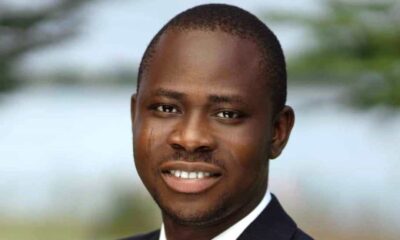GRTech
Nigeria Nominates Dr. Hussani For Africa Telecom Union Secretary General


The federal government of Nigeria has fielded Dr. Abubakar Sadiq Hussani as its candidate for the position of secretary-general of the African Telecommunications Union (AtU) in the forthcoming ATU Plenipoteniary Conference holding August 16-17, 2018 in Nairobi, Kenya.
In the last one week, Nigeria signified its interest to compete for the exalted position of the Secretary General of the Africa Telecom Union (ATU), the African teleocm body for the period 2019 to 2022 through a diplomatic note verbale No. A.90/2018 dated 13th July 2018 sent by the federal government and published by the ATU on its webpage, among other documents acknowledged via a Note-by-the Secretary-General Ref 079/07/ATU/SG-2018 dated 17th August 2018.
Dr Abubakar Sadiq Hussani, a former assistant professor of telecom engineering, Modibbo Adama University of Technology, Yola, and the current head of department of telecommunications and wireless technologies of the American University of Nigeria as well as head of programme for the 54-member British Commonwealth ITU Group (CIG). He was proposed by Nigeria as its candidate for the August contest.
The diplomatic document stated that Dr Hussaini possesses a great wealth of experience in telecommunications which are necessary attributes to hold the prestigious office on the continental level.
At the close of nominations on July 17, 2018 only four countries have signified their interest to field candidates for the contest in line with the ATU circular Ref. 06/01/ATU-CIR/2018 of 16th January 2018. The remaining three are Burundi, Congo Brazaville and Kenya who fielded Mr Constaque Hakizimana, Dr Eric Ndoumba, and Mr John Omo respectively.
Three of the four candidates are accomplished telecoms Engineers while the Kenyan Candidate Mr Omo is a Lawyer. Glancing through the CVs of candidates, if the election is to be determined in terms of technical and cognate experience of managing international organizations, Dr Hussaini of Nigeria stands a very good chance.












